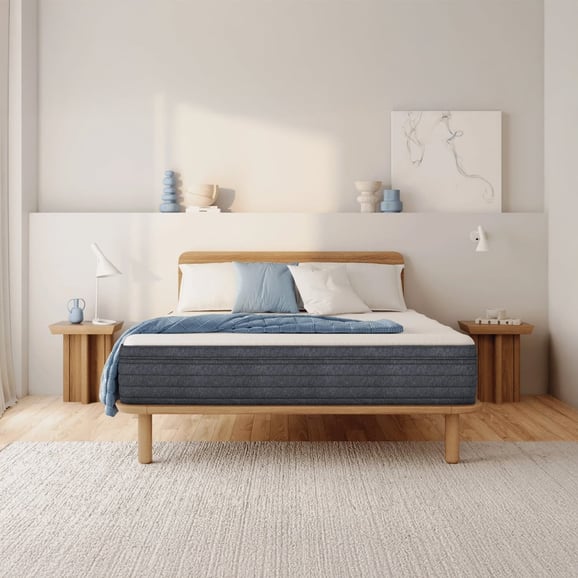Have you ever felt like your sleep talk is a little bit… odd? Like, the things you say while you’re asleep aren’t really that normal? Well, like millions of other people, you’re probably not the only one. Turns out, sleep talking isn’t just a little bit weird — it’s actually common to an alarming extent. In fact, research has shown that around 66% of the population has some degree of sleep talking. So, if you’re wondering why you feel like your nighttime conversations with the pillow are a little bit… off, there’s a good chance you’re not alone. Here’s everything you need to know about sleep talking.
What is sleep talking?
Sleep Talking is when you talk in your sleep — or, more accurately, when you make noises while you’re asleep. It can take many forms, including murmuring, mumbling, groaning, growling, yelling, and babbling. These sounds can be words, non-words, or a combination of both.
While some people have very little or no nighttime sleep talk, others have excessive amounts of it. If you’re one of the latter, you’re not alone. Up to 80% of people who have sleep disorders talk in their sleep, and up to 90% of this talk can be characterised as “non-self” related. That is, it doesn’t pertain to the person’s own actions or experiences — it can be about things like furniture, animals, or celebrities.
Sleep talking can be a sign of sleep disorders. In some cases, sleep talking may be a form of parasomnia — a sleep disorder characterised by unusual behaviours during sleep. But it can also be a normal part of being human.
What causes sleep talking?
Sleep talking is the result of a complex interaction between your genes and your environment — in other words, it’s a result of both biology and environment. There are a few different theories on the origins of sleep talking, but the one that seems most likely to be correct is that it results from an interaction between REM (rapid-eye-movement) sleep and waking consciousness.
REM sleep is the phase of sleep when dreams occur. It’s also when one of the main symptoms of sleep talking — unusual dreams — is most likely to occur.
During REM sleep, your brain is very active. The limbic system, which is responsible for emotion and memory, is especially active. The amygdala, which is responsible for emotional responses, is especially active. The two main theories about the origins of sleep talking are that either the activity in your amygdala is causing you to talk in your sleep, or that the activity in your amygdala is the result of you talking in your sleep.
Symptoms of sleep talking
There are a few different ways that you might be exhibiting signs of sleep talking. Generally, the more frequently you sleep talk, the stronger the signs of sleep talking will be.
Here are a few general symptoms of sleep talking: You might sleep talk when you’re trying to fall asleep. You might sleep talk when you’re in a light sleep. You might sleep talk when you’re waking up. You might even sleep talk when you’re not quite asleep.
Is sleep talking dangerous?
Although it can be a nuisance, sleep talking isn’t necessarily dangerous. There are a few different reasons why sleep talking might be a problem, and it can be helpful to get help if you’re exhibiting any of these signs:
- You’re sleep talking a lot more than normal people.
- You might be exhibiting any of the other symptoms of a sleep disorder, such as sleepwalking, night terrors, or strange dreams.
- Your sleep talking is interrupting your sleep or keeping you from sleeping through the night.
- You’re worried that your sleep talking might be a sign of a more serious condition, such as sleepwalking with someone Else’s Behavior Disorder, night terrors, or another sleep disorder.
How to stop sleep talking
Unfortunately, there isn’t a whole lot you can do to control whether or not you sleep talk. Some people are more likely to sleep talk than others — and there’s definitely not a whole lot you can do about that.
If you’re worried that your sleep talking might be affecting your health or your relationship, there are a few things you can do. You can try to get more sleep. This might seem like an obvious solution, but it’s not always an easy one. If you’re a night owl who struggles to fall asleep, you can try to shift your schedule so that you’re not staying up late into the night. You can try to avoid caffeine, which can make it harder for you to sleep.














